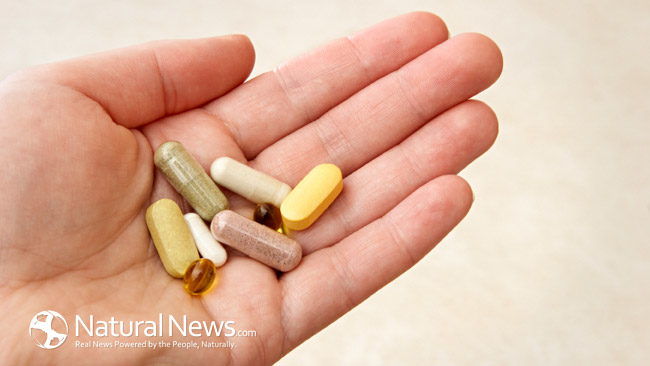You eat clean, you exercise daily, but are you reaching the recommend daily intake of vitamins and minerals? What if, all your hard work isn’t enough to do that? Well it might not be, but not because your hard work isn’t counting for anything, it’s just sometimes our bodies need a little extra push. So does that mean you should be taking dietary supplements daily, too? According to the Mayo Clinic, it is important to get your primary nutrition from your diet. In other words, you can’t trade in your green smoothie for cheese fries if you are taking dietary supplements. While dietary supplements offer the nutrition you may be lacking from your diet, they can’t replicate all the benefits of getting those vitamins and minerals from a whole food source. If you aren’t eating the greatest, the expense of supplements might be worth the investment, but we recommend changing your diet first to give your body the nutrients it needs.
According to the U.S. Food and Drug Administration, supplements are quite a bit different from medications. Instead, they are generally vitamins, minerals, herbs, amino acids, enzymes, botanicals, concentrates, extracts, etc. They can be found at local grocery stores or smaller private companies such as Green Organic Supplements. The majority of adults in the United States take one or more dietary supplements daily. Generally, supplements consist of dietary ingredients placed in a tablet, capsule, liquid, powder and more, for nutritional value. Some are taken to ensure you meet your daily intake of vitamins and minerals and others can be taken to reduce the risk of certain diseases. This all sounds wonderful, so why can’t you eat the cheese fries and just take your supplements?
Well it’s not quite as simple, it’s actually complex, because whole foods are complex. They offer a variety of micronutrients which work together to give the body multiple beneficial properties, while supplements generally only offer one. Remember, one is better than none. Let’s say you go to the doctor and they say you’re in good health, but you could use more vitamin B in your diet. You could add a vitamin B supplement to your routine and you would be in good shape. But, if the doctor says you’re low in multiple vitamins and minerals, we would suggest changing your diet first and if you still need a little extra push, add some supplements.
Phytochemicals are also present in whole foods, which fight against cancer, heart disease, diabetes and high blood pressure according to the Mayo Clinic. These are not present in supplements, so it is important to remember supplements are not a substitute for a good diet.
Many supplements can be found in natural and organic variations. The term “natural” doesn’t always mean it is safe, so it is important to do your research and look for supplements that are crafted without fillers and in safe environments. Remember, living healthy and meeting suggested daily vitamin intakes are challenging and expensive. Many of us think we are being healthy, but actually come up shy of recommended servings. Many times people aren’t eating enough of the right foods or doing the exercises their bodies need them to do. That’s why companies like Green Organic Supplements offer a solution with safe and natural dietary supplements that are made personally for you, order by order. At this company, they focus on supplements that use the essential vitamins and minerals from whole foods. This is the perfect solution to help you reach your daily intake goals and/or other medical conditions you may be struggling with.
Supplements will also be beneficial for:
– Woman who may become pregnant (400 micrograms folic acid)
– Woman who are pregnant (prenatal vitamin including iron)
– Adults age 50+ (vitamin B-12)
– Adults age 65+ living alone (800 IU of vitamin D)
– People who don’t eat well
– People who consume less than 1,600 calories a day
– Vegans and vegetarians
– People who don’t eat a variety of foods
– People who don’t eat fish 2 to 3 times a week (Fish oil)
– Woman who experience heavy bleeding during menstrual cycle
– People with medical conditions that affect your body’s nutrient absorption
– People with food allergies/intolerances
– People who have had surgery on digestive tract
Works Cited
“Dietary Supplements: What You Need to Know.” Dietary Supplements: What You Need to Know. N.p., n.d. Web. 28 Oct. 2015. https://ods.od.nih.gov/HealthInformation/DS_WhatYouNeedToKnow.aspx.
“Nutrition and Healthy Eating.” Supplements: Nutrition in a Pill? N.p., n.d. Web. 28 Oct. 2015. http://www.mayoclinic.org/healthy-lifestyle/nutrition-and-healthy-eating/in-depth/supplements/art-20044894.
“U.S. Food and Drug Administration.” What Is a Dietary Supplement? N.p., n.d. Web. 28 Oct. 2015. http://www.fda.gov/AboutFDA/Transparency/Basics/ucm195635.htm.





